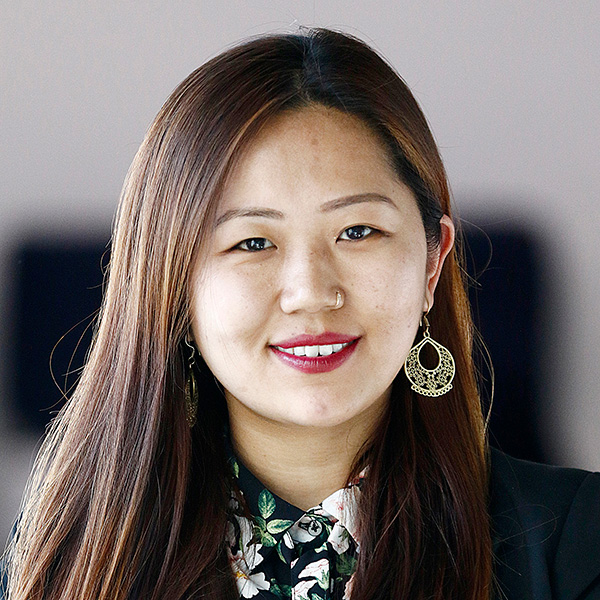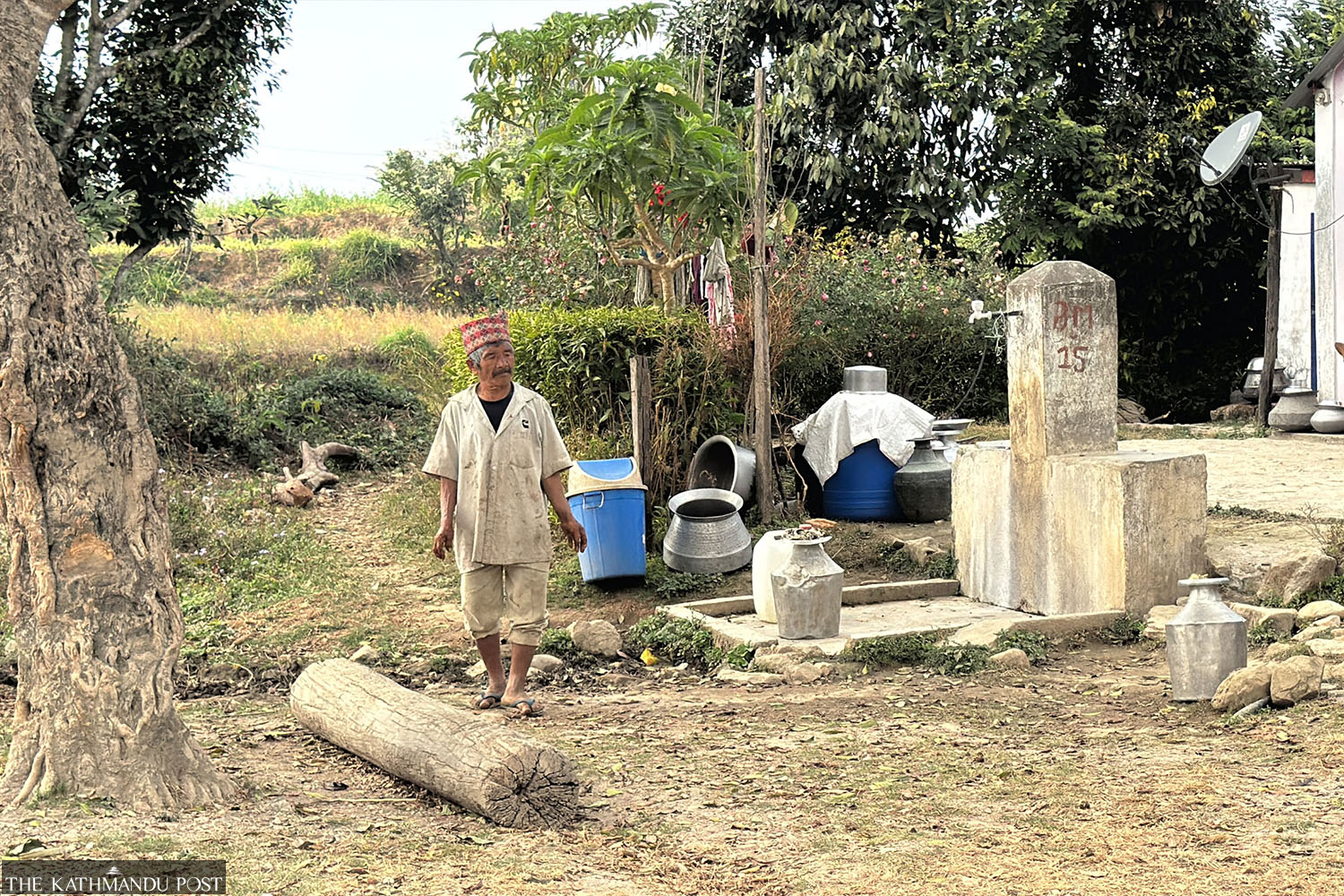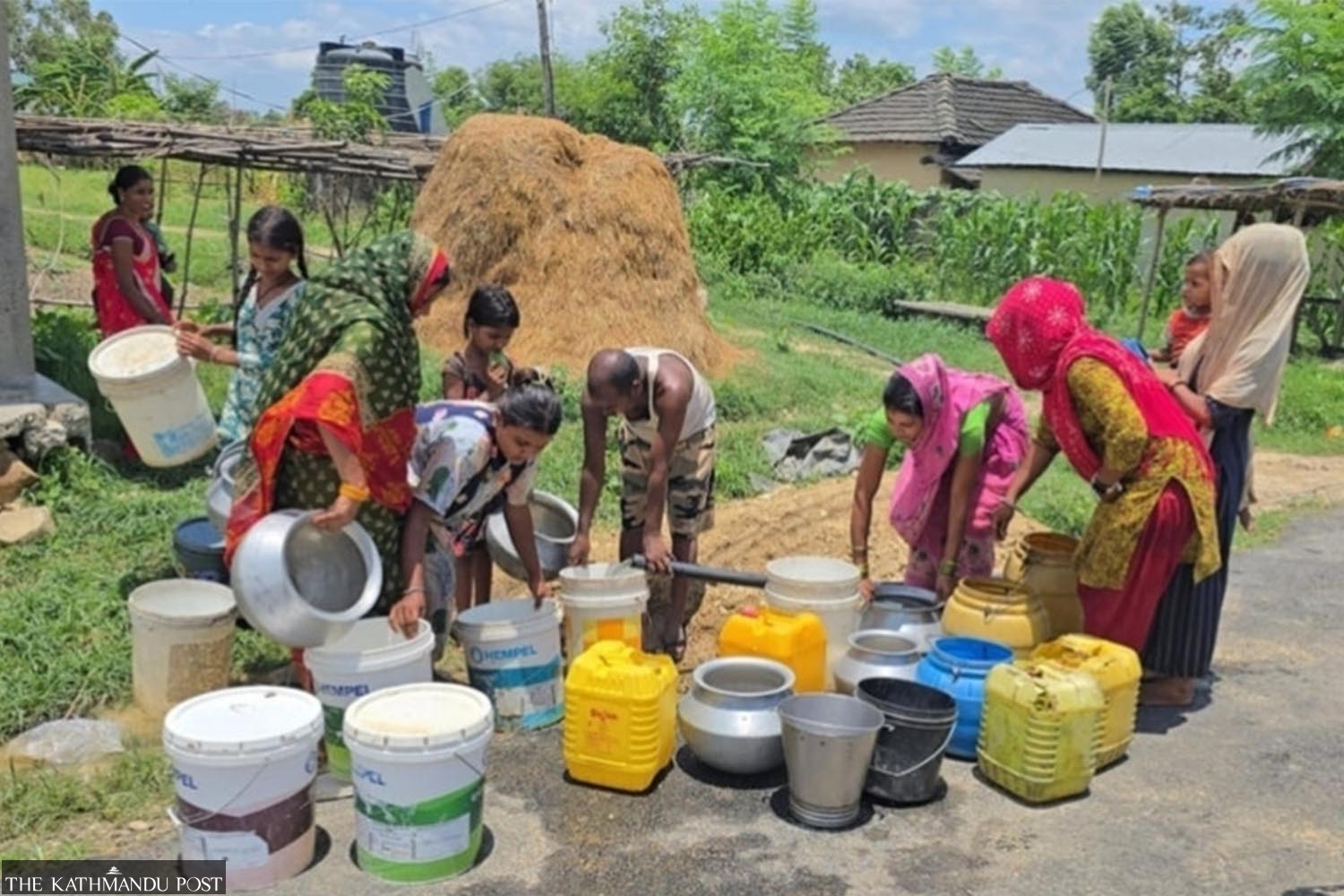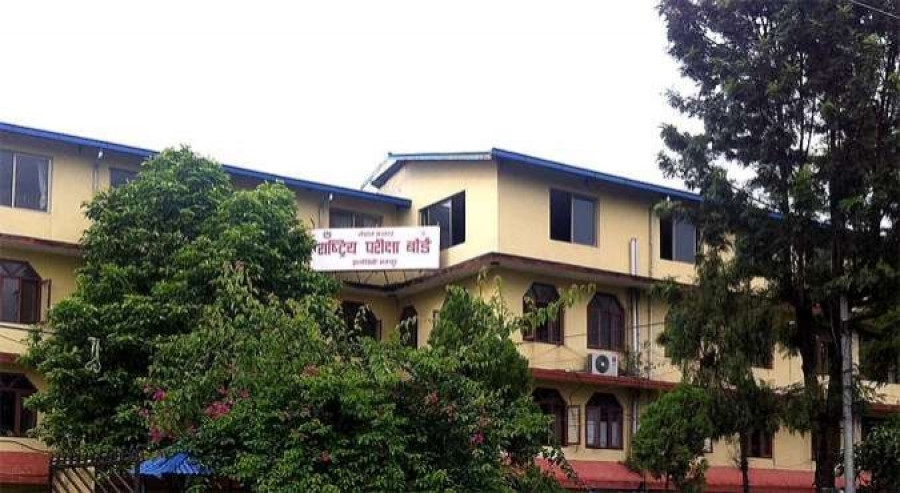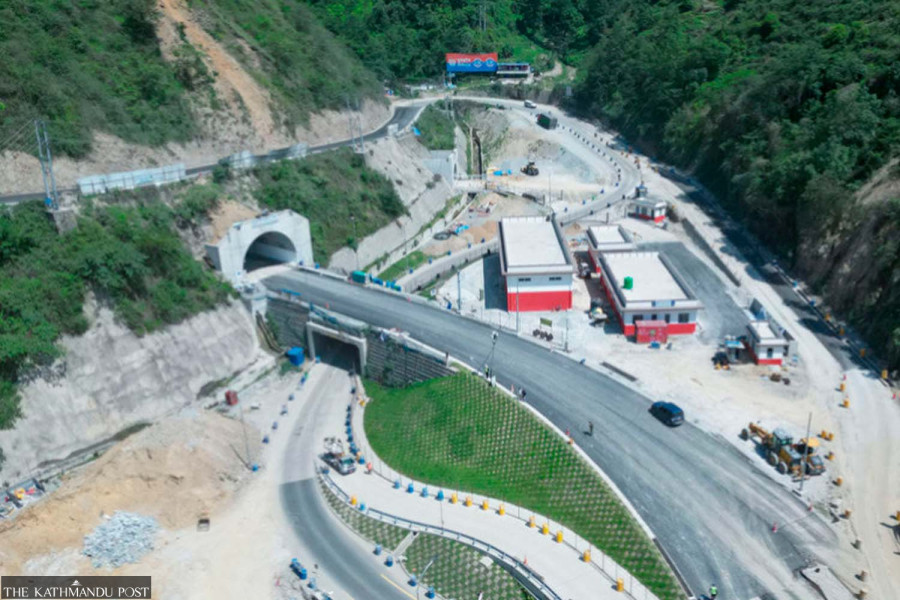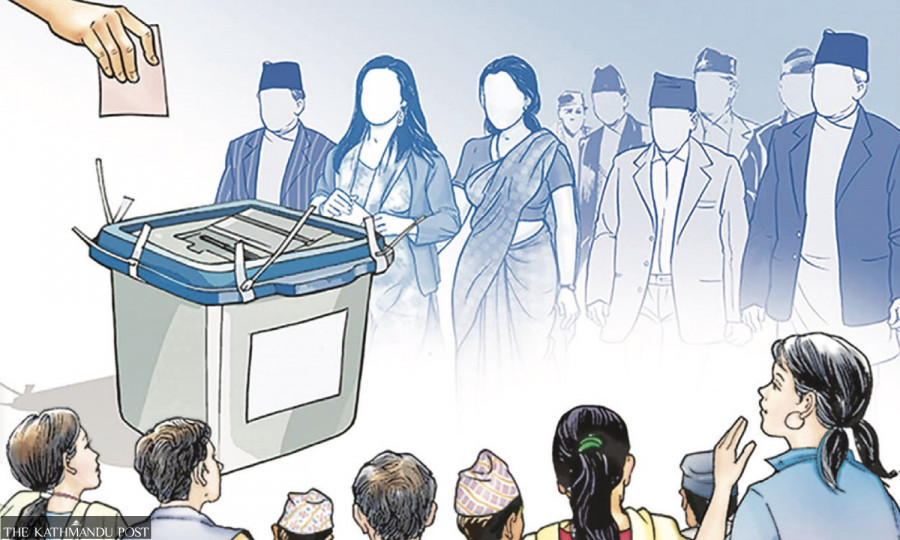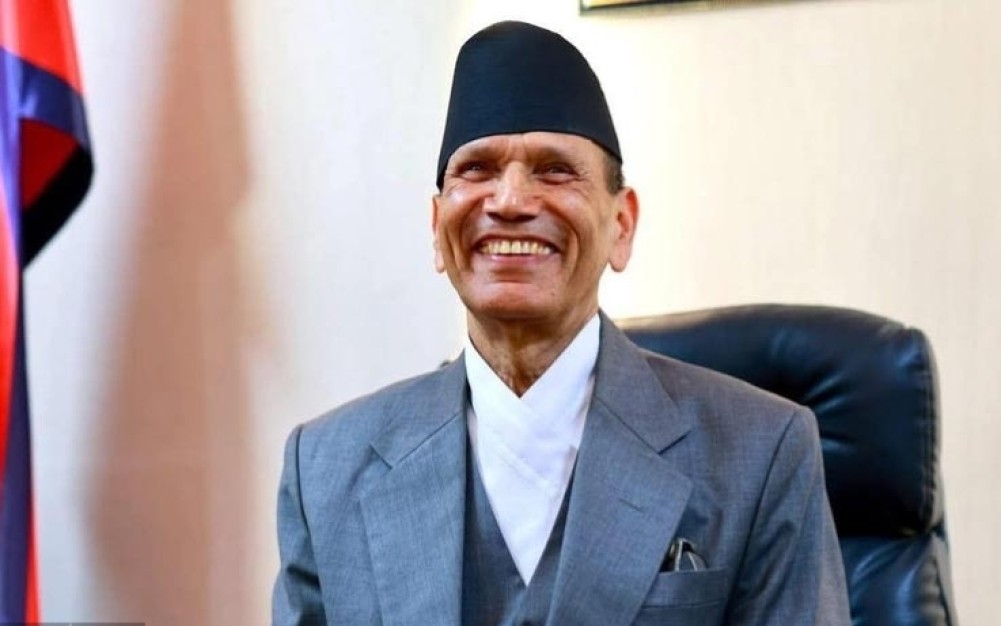National
For rape survivors in Nepal, police is not always their friend
The country’s police force is heavily male and woefully undertrained when it comes to dealing with survivors of sexual violence.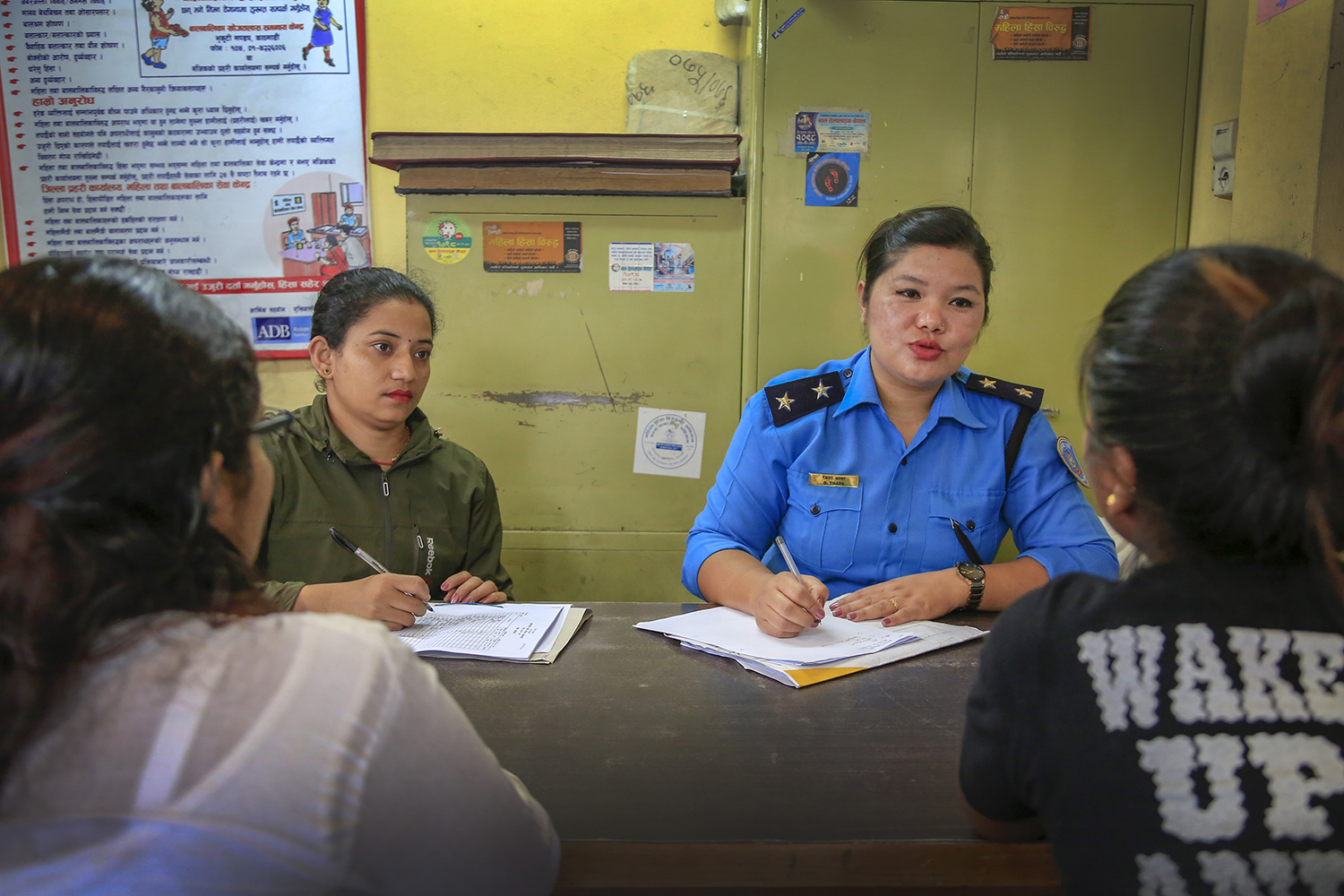
Bhrikuti Rai
The legal term for rape in Nepali is a long and winding seven syllable word: ja-bar-jas-ti-ka-ra-ni.
So when a police officer at the Dhulikhel police station asked 15-year-old Kriti to recall the first time she was raped, she didn’t know how to respond. Kriti, who had been continually raped by her grandfather and father since she was nine, asked the police officer, a woman, what ‘jabarjasti karani’ meant. The woman in uniform, sitting across Kriti, scoffed, “If you don’t know what that means, why are you here?”
Recalling the incident from seven years ago, Kriti said the first question was enough to demoralise her already faltering spirit and body, as she was trying to recover from a suicide attempt just a few weeks ago. But the steely line of questioning didn’t end there. She was asked to recall horrific details of what had happened to her. Not once did she feel that the officer was empathising with her, either in tone or attitude.
What time did this happen?
How many times did he do it?
How long did he rape you for?
How did he take your clothes off?
Why didn’t you run? Why didn’t you raise a voice?
Did he turn you around to do it?
“I didn’t understand what she meant when she asked me ‘which side?’ How would I know?” Kriti said, recalling the questions asked by the female police officer.
Kriti’s experience is not an isolated one. Human rights activists say young Nepali girls and women who report rape, which is now estimated to be over a thousand each year, face an insensitive police force that is heavily male and woefully undertrained when it comes to dealing with survivors of sexual violence, a majority of whom are minors. According to Nepal Police, there has been a sharp increase in the percentage of reported rapes in the country. Ten years ago 309 rape cases were reported to the police, which increased nearly four fold in the past decade, resulting in 1,480 reported rape cases last year.
The girls, including Kriti, who spoke to the Post for this story, are being identified by pseudonyms because they are minors and did not wish to give their real names.
The rape and murder of 13-year-old Nirmala Pant in 2018 led to a stringent re-examination of the police’s handling of rape cases in Nepal. Last September, two months after Pant’s gruesome murder and several mass protests, the Nepal Police formed a committee to probe the workings of the officers involved in the investigation, which many say was botched from the very beginning.
High up on the findings of the committee was the police’s “inability to create a victim-friendly environment.” When it formulated its gender policy in 2013, that is exactly what the Nepali Police had set out to do--make the institution and its officers more victim-friendly, especially in cases of rape and gender violence.
But rape survivors like Kriti say this is exactly what is still missing at police stations across the country. Seven years later, Kriti vividly remembers the police officer looking at her in utter disbelief that a girl was accusing her father of rape. She was repeatedly asked if she was lying.
Kriti made it through the over hour-long interrogation in tears. Every time she broke down, the police officer, instead of calming her, would admonish her, saying there was no point in crying now.
“I just didn’t want to answer anything she asked,” Kriti said.
But she did. Not once, not twice, nearly half a dozen times. She recounted horrific details of her abuse to different police officers--every time, a new officer would be updating her case file, who asked her to repeat everything from the beginning--and lawyers, who were almost always male.
Counselors who work with rape survivors say the belittling attitude of officers and the institution’s soul-crushing bureaucracy--survivors are forced to show up at the police station multiple times before the investigation even begins--can take a heavy toll.
“Survivors cannot start their healing process because they have to continue repeating what happened to them over and over again, which traumatises them,” said Anila Dangol, a counselor at a children’s shelter run by Chora Chori, a charity that works with survivors of trafficking and sexual violence, in Godavari.
According to counselors and activists, most rape investigations begin with a premise: the woman is at fault. Social workers who work with rape survivors say they have witnessed judgemental attitudes, from questioning the women’s characters to their inability to “escape” the situation.
Mohna Ansari, a commissioner at the National Human Rights Commission whose team has been working on identifying how the Nepal Police investigates crimes like rape, says she is frustrated by the insensitivity of law enforcement. Three years ago, the commission wrote to the police requesting them to inform them about reported rape cases in Nepal, in order for the commission to closely monitor the situation of human rights violation. But a few months after sending updates, the police stopped the correspondence, making the commission’s work more difficult.
For the past two-and-a-half years, Ansari’s team has spoken to dozens of survivors of rape for a nationwide study, which will be published later this year.
“There is a crisis of sensitivity in investigation,” said Ansari.
And this reflects in police’s interaction with the survivors, many of whom are barely in their teens.
“The biggest hurdle is getting past the police station, where the survivor is forced to relive the trauma,” said Bhaskar Karki of Chora Chori. “If the victim has connections, class- and caste-wise, then the police will register the case; otherwise they won’t file it easily.”
***
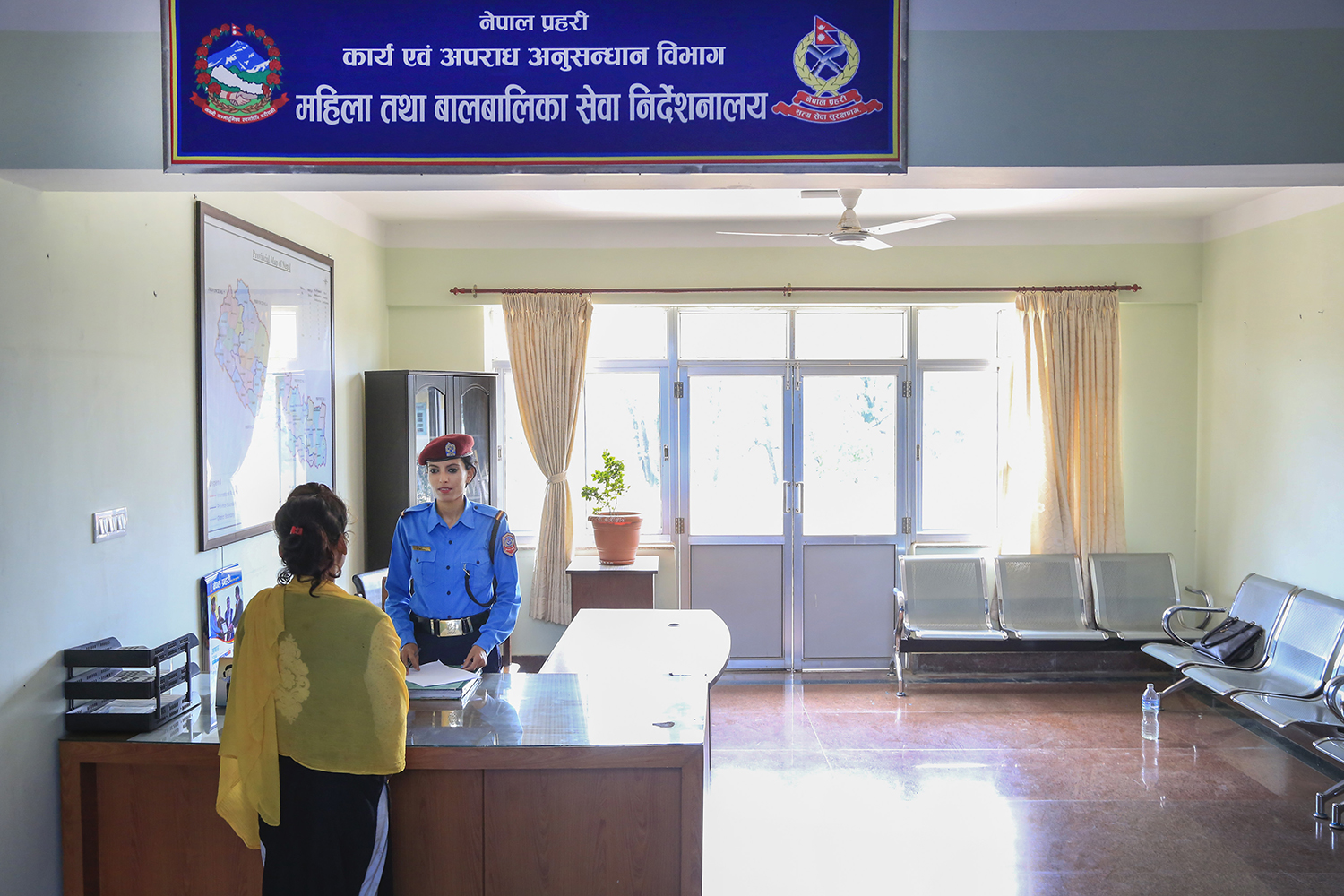
In January last year, months before the police turned away Chandani, officers in Durbar Marg had done something similar, refusing to file the complaint of a rape survivor. When the issue surfaced in the national press, the police was compelled to look into what had happened, calling the incident a “grave mishandling of a rape case” and suspending the officers involved.
In Chandani’s case, nothing of that sort has happened. When social workers and lawyers associated with Chora Chori went to the police station in Janakpur to inquire about the case, they were told that Chandani had a “reputation”, implying the incident took place with her consent.
Finally, when Karki and his colleagues told the police that as a minor, Chandani could not give consent to sexual relations, the police agreed to lodge a complaint. Then, once again, Chandani had to retell the entire horrific episode to another male officer.
“This happened three or four times, and it became more difficult each time,” Chandani told the Post.
It’s been a year since then, and the police have so far arrested three men. Two have fled the town while the identity of the two others remains unknown.
Chandani says it would have been a lot less stressful if there had been a woman on the other side of the table and if the interaction took place in a quieter room.
For younger survivors, being in the same room with police, whom many young girls said make them fearful, is all the more nerve-wracking.
Thirteen-year-old Reshma, who went to a police station in Panchthar, said her meeting with the officers was rife with fear, confusion, and disappointment.
“There was so much happening around me,” she said, recalling the male police officer who questioned her at 2am, just hours after she was raped by a neighbour in a jungle near her home.
The man had offered to drop her home that evening after an evening at the local church. Instead, he stopped mid way on a deserted street and forced himself on her. Even though Reshma managed to escape at first, he caught up with her at the nearby jungle, raped her and left her there.
“There were other male police officers working around the desk where I was being questioned,” she said. “There was a CCTV camera above and an injured man was being questioned nearby.”
***
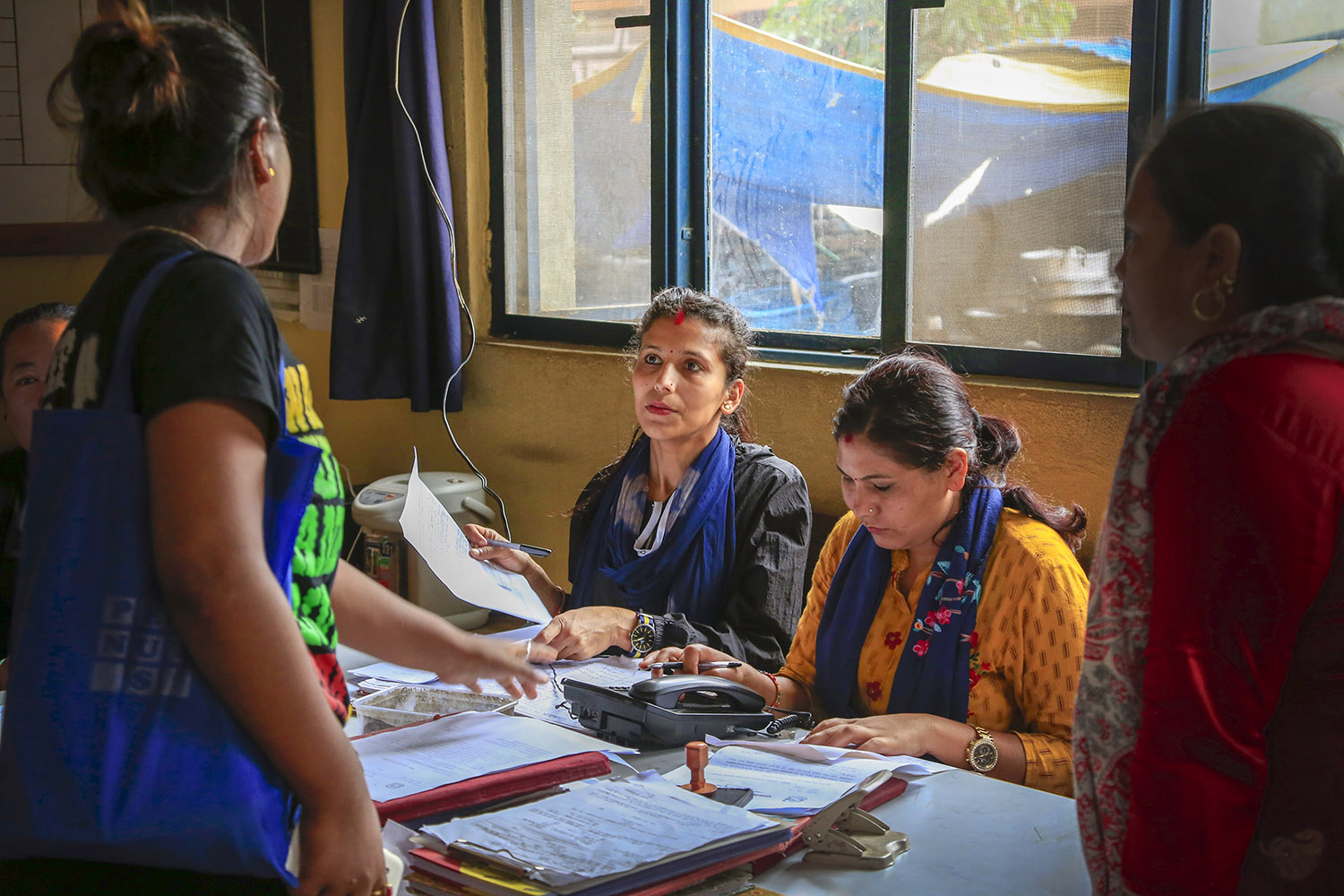
Today, Chandani and Reshma live in a children’s shelter home on the outskirts of Lalitpur, with nearly a dozen other minor girls who’ve been through the same violence they have. According to the counselor at the shelter, after being raped last year, Reshma tried to commit suicide twice, which could’ve been the result of the punishing attitude that society--and the police--have towards rape survivors.
In order to “reduce the vulnerability and helplessness of women and children”, the Asian Development Bank had provided $3.5 million, from 2009 t0 2013, to help the Nepal Police build women and children service centres. In addition to building infrastructure, thousands of dollars was spent on providing training to officers and developing two specialised training manuals on gender responsive counseling and gender responsive investigations. According to ADB, these manuals have now been integrated into related curriculum for the “NP (Nepal Police) regular training”.
But organisations working with rape survivors say these training programmes are limited to higher ranking officials, who never serve in front line positions. As a result, a large number of people who report rapes meet police who’ve likely never undergone sensitivity training.
Menuka Thapa, chairperson of Raksha Nepal, an organisation that works with survivors of rape and trafficking, says that while the sensitivity of senior police officers has increased, much more needs to be done about those in lower ranks, who are the first point of contact for victims of sexual violence.
In an interview with the Post, Pitambar Adhikari, the deputy inspector general who heads the women and children directorate, said the police administration is aware of the lack of gender sensitivity among its officers.
“That’s why, to address this crisis, we have been providing training,” said Adhikari. “As a public institution, we know we have to do better and are striving for the same.”
In recent years, the police force has been taking steps gradually to train its junior officers. According to UNICEF, which has partnered with the directorate to train officers on handling cases involving minors, between 2017 and 2018, of the 136 police officers who took part in training, 80 percent were constables.
“We’ve seen a tremendous difference in the police’s attitude over the years when it comes to dealing with minors,” said Radha Gurung, child protection specialist at UNICEF. “But to see that across the police force depends on the leadership making existing systems more effective.”
But at the current pace, it could take several years before police on the frontlines receive training opportunities. In the seven years since the police formulated its gender policy, only 5,038 personnel--less than 10 percent of the police force--have received gender responsive training.
A sub-inspector in Birgunj told the Post that the problem lies in the institution’s refusal to give up its old ways, where police officers still flex muscle and mistreat people simply because they wear a uniform. In her 23 years of service, the last 10 in the women’s cell, the officer said she has only been part of one counselling training.
“I wish I had taken the training earlier,” said the female officer, who spoke to the Post on condition of anonymity because she is not authorised to speak to the media. “I hope everyone, both men and women, is given the training so we can learn how we should speak to people.”
The directorate, which has recently been renamed Women, Children and Senior Citizen Service directorate and falls under the Crime Investigation Department, has rapidly expanded its presence in all the 77 districts with 240 units, the majority of which was built with the ADB grant. Of the 1,361 appointments to these units, more than half remain vacant and nearly a half of all district police offices don’t have a separate building for the women and children service centres.
But former and current officers involved with the directorate say physical infrastructure alone doesn’t give these bodies any teeth.
Former Deputy Inspector General Bimala Thapa, who led the directorate before retiring in 2013 and was the key person overseeing the ADB grant, says she was frustrated by the limited authority her department had.
“We never had the resources to pursue or investigate cases that came to us,” said Thapa. The directorate, which was established in 1996, gives authority only to the women’s cell in Kalimati to register cases.
“The directorate and the women’s cells were there just so that the police could say there was a body to look at cases like these,” said Thapa. “They are there just to console the victims, not to truly provide justice.”
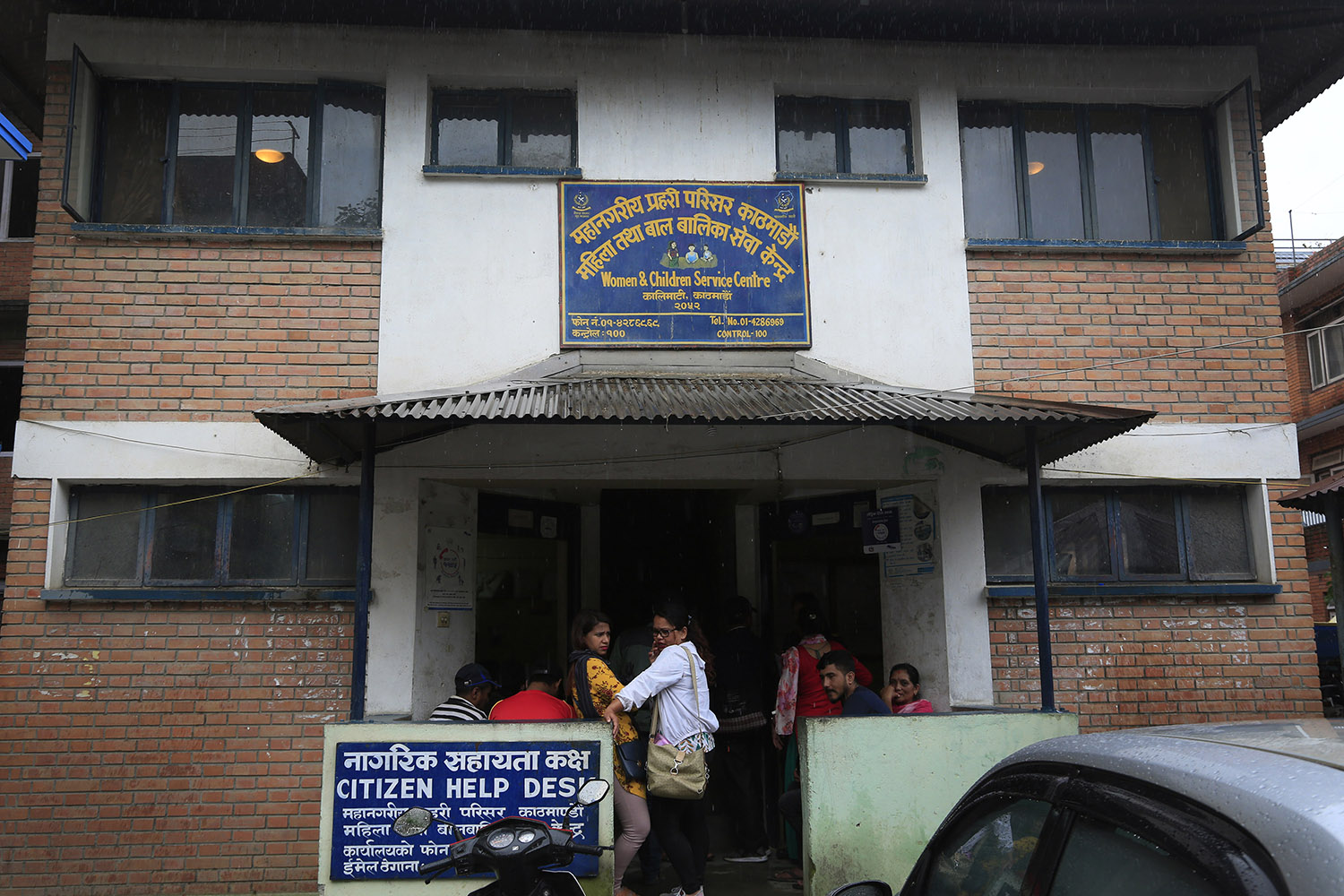
Correction: This article has been updated to reflect that UNICEF child protection specialist was Radha Gurung and not Radhika Gurung as mentioned in the earlier version.
***
What do you think?
Dear reader, we’d like to hear from you. We regularly publish letters to the editor on contemporary issues or direct responses to something the Post has recently published. Please send your letters to [email protected] with "Letter to the Editor" in the subject line. Please include your name, location, and a contact address so one of our editors can reach out to you.




 20.12°C Kathmandu
20.12°C Kathmandu